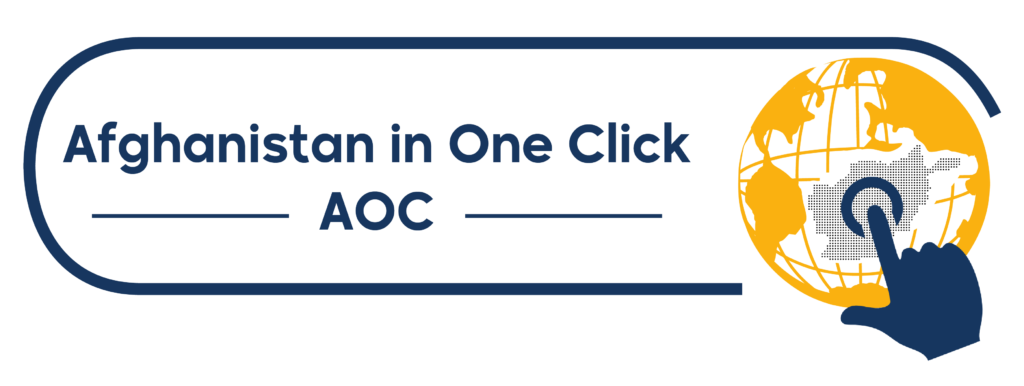Third Doha meeting on Afghanistan gets underway in Qatar
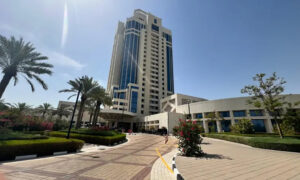 The UN-led meeting on Afghanistan got underway early Sunday, bringing together special envoys of numerous countries, along with United Nations representatives and a delegation from the caretaker government.
The UN-led meeting on Afghanistan got underway early Sunday, bringing together special envoys of numerous countries, along with United Nations representatives and a delegation from the caretaker government.
The two-day meeting will address the banking and financial situation as well as the fight against drugs in Afghanistan.
Chairing the meeting on behalf of the UN Secretary General, Rosemary DiCarlo, the under-secretary general, said Sunday she is pleased that the de facto government sent a delegation to attend the meeting.
DiCarlo said: “I am happy that we have the relevant delegations with us in this meeting, we have the governing authorities with us for the first time.”
While delegates will discuss the situation in Afghanistan over these two days, the issue of women’s education and work has also attracted the attention of the media.
In these meetings, the expansion of relations between Afghanistan and these countries has been discussed.
Mawlavi Abdul Kabir, the political deputy prime minister of the de facto government of Afghanistan, also considered this meeting valuable due to the presence of the delegation of the de facto government as a responsible government and said that such meetings are a good opportunity to interact with the world,” he said.
Suhail Shaheen, head of the political office of the caretaker government in Qatar, told Ariana News that the expectation of the caretaker government from the third meeting in Doha is that the world should understand the realities of Afghanistan and abandon the policy of pressure and confrontation.
Afghanistan’s central bank chief leaves for Djibouti to attend IFSB meeting
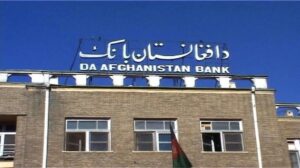 Acting Governor of Da Afghanistan Bank (DAB), Hedayatullah Badri, has left for Djibouti to attend the 22nd annual meeting of the Islamic Financial Services Board (IFSB).
Acting Governor of Da Afghanistan Bank (DAB), Hedayatullah Badri, has left for Djibouti to attend the 22nd annual meeting of the Islamic Financial Services Board (IFSB).
The annual meeting of the board will be held on July 1 and 2 by the IFSB and Djibouti’s central bank to discuss and approve the previous year’s executions and financial reports of the board, DAB said in a statement.
The International Financial Services Board (IFSB) is an international institution that adopts and disseminates the standards to improve the soundness and stability of the Islamic financial services industry.
The standards are adopted within the framework of Sharia law in the banking, financial markets, and insurance sectors for the institutions operating in the Islamic financial services industry.
Da Afghanistan Bank, central banks of Islamic countries, Islamic banks, and international institutions are members of the IFSB.
Countries Interested in Expanding Relations
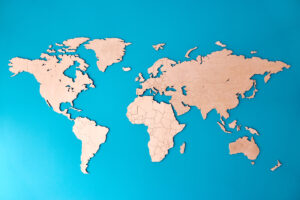
Khalifa Sirajuddin Haqqani, the Acting Minister of Interior, says that many countries are interested in expanding their relations with the interim government.
According to the Deputy Spokesperson of the de facto government, Haqqani described his recent trip to the United Arab Emirates with the Director-General of Intelligence as significant for strengthening relations with other countries.
Hamidullah Fitrat, Deputy Spokesperson of the de facto government, said, “In this meeting, Khalifa Sirajuddin Haqqani and Mawlawi Abdul Haq Wasiq provided information about their trip to the UAE and described their meetings with UAE officials as important for expanding relations. They also added that many other countries wish to strengthen their ties with the de facto government
These two officials of the caretaker government also provided details to the Deputy Prime Minister for Political Affairs about the country’s security programs and coordination among security sectors.
At the same time, Mawlawi Abdul Kabir, the Deputy Prime Minister for Political Affairs, emphasized the importance of positive and constructive interaction with countries worldwide, adding that the caretaker government seeks to expand its relations with the world.
Hassan Haqqyar, a political analyst, said, “Afghanistan needs the world, and the world needs Afghanistan. Afghanistan cannot live in isolation.”
Some experts believe that strengthening the interim government’s relations with other countries will benefit the people of Afghanistan.
Sayed Qaribullah Sadat, a political analyst, said, “Engagement is a two-sided issue; it is not one-sided where one party wants to engage, and the other party says we do not engage.”
Nearly three years after the caretaker government return to power, no country has yet recognized the interim government. However, some countries maintain good diplomatic relations with the caretaker government.
German Social Democratic Party Requests to Reopen Their Embassy in Kabul
 The Social Democratic Party (SDP), the party of the German Chancellor, has called for the reopening of Germany’s embassy in Kabul.
The Social Democratic Party (SDP), the party of the German Chancellor, has called for the reopening of Germany’s embassy in Kabul.
Nils Schmid, the spokesperson of this party, in an interview with Der Tagesspiegel newspaper, spoke of sending German diplomats to Afghanistan and added that his country should pay attention to reopening its embassy in Kabul.
Schmid added that sanctions against the interim government of the “Taliban group” are not beneficial for any party.
He said: “Germany should reopen its embassy in Kabul. By not establishing diplomatic relations with the Taliban and not providing developmental aid, Germany is worsening the situation in Afghanistan.”
“If the embassy is reopened here, a common language will be created. I think the distance will be eliminated, and gradually proximity will be achieved,” Jawed Momand, a political analyst, told media.
“This can prevent the gap with the international community. Countries play an important role in reconstruction,” said Edris Khan Zazai, another political analyst.
Hamdullah Fetrat, the deputy spokesperson for the caretaker government, welcoming the statements of the German Social Democratic Party, said that the interim government is ready to facilitate the arrival of German diplomats in Kabul.
Fitrat said: “We view the statements of the spokesperson of the German Social Democratic Party positively. If Germany sends its diplomats to Kabul, the caretaker government of Afghanistan is ready to facilitate the return of German diplomats.”
Earlier, Nicaragua appointed a non-resident ambassador to Afghanistan, and several other countries have also considered reopening their embassies in Kabul.
Regional Contact Group Meeting on Afghanistan Held
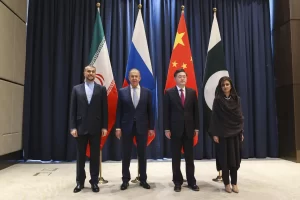 Hassan Kazemi Qomi also mentioned that the recommendations given to the interim government do not imply interference in Afghanistan’s affairs.
Hassan Kazemi Qomi also mentioned that the recommendations given to the interim government do not imply interference in Afghanistan’s affairs.
The second round of the Regional Contact Group meeting on Afghanistan was held today (Saturday) in Tehran with the participation of special representatives from Iran, Russia, Pakistan, and China.
The ambassador and special representative of Iran for Afghanistan described the current crisis in Afghanistan as severe and stated that to overcome it, the interim government should form a government comprising competent individuals from various sectors.
Hassan Kazemi Qomi also mentioned that the recommendations given to the interim government do not imply interference in Afghanistan’s affairs.
In a press conference related to this meeting, Kazemi Qomi stated, “The scale of the crisis and challenges in Afghanistan is significant. It requires utilizing national capacities within the country, along with beneficial and favorable regional cooperation. This does not mean interference but is a suggestion and well-intentioned advice.”
He added that the third Doha meeting on Afghanistan was one of the topics discussed in this meeting.
The acting Minister of Foreign Affairs of Iran, in a message read by his assistant during the meeting, emphasized that Iran supports constructive initiatives for peace, stability, and development in Afghanistan.
Meanwhile, Zaki Jalali, the head of the third political department of the Ministry of Foreign Affairs of the Islamic Emirate, stated that although they were invited to the Regional Contact Group meeting on Afghanistan, they did not attend. He added that existing mechanisms should be used in meetings concerning Afghanistan instead of creating new structures.
Doha Talks 'In No Way' Recognize Afghan Interim Govt: Dujarric
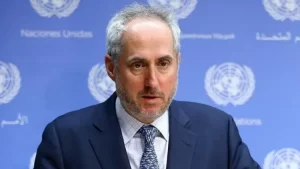 A delegation of the caretaker government, led by Zabihullah Mujahid, will participate in the third Doha meeting, and the United Nations has described this meeting as a process to compel the interim government to adhere to its commitments.
A delegation of the caretaker government, led by Zabihullah Mujahid, will participate in the third Doha meeting, and the United Nations has described this meeting as a process to compel the interim government to adhere to its commitments.
Stéphane Dujarric, spokesman for the UN Secretary-General, highlighted at a press briefing that holding the third Doha meeting, and meeting with the Afghan interim government delegation, does not imply formal recognition of them.
The spokesman for the UN Secretary-General, said: “In no way should any of the meetings between UN officials and the envoys be seen as an official recognition of the Taliban as the government, or legitimization. It is about meeting who we need to meet because they are in control of Afghanistan, right? So, we have to meet with them in order to deal with the issues of Afghanistan.”
Meanwhile, Rosemary DiCarlo, the UN Under-Secretary-General for Political and Peacebuilding Affairs, said that the ultimate goal of this process is the full integration of Afghanistan into the international community and the implementation of the interim government’s international commitments, including human rights and women’s and girls’ rights.
The Ministry of Foreign Affairs announced yesterday (Tuesday, June 25) that based on the directive of the leader of the caretaker government, Zabihullah Mujahid would lead the interim government delegation to participate in the third Doha meeting.
Hafiz Zia Ahmad Takal, deputy spokesman for the Ministry of Foreign Affairs, said: “According to the directive of the leader of the caretaker government, the caretaker government delegation will participate in the third Doha meeting under the leadership of Mawlawi Zabihullah Mujahid, the central spokesman of the caretaker government.”
Meanwhile, 16 prominent women leaders in the Global Female Leaders’ Summit 2024 emphasized in an open letter to the international community that ignoring women in the Doha meeting undermines the credibility and effectiveness of this meeting.
Fatima Peyman's membership in the Australian Labor Party was suspended indefinitely
 The Labor Party, Australia’s ruling party, suspended its senator Fatima Peyman from membership indefinitely after she voted to recognize the state of Palestine.
The Labor Party, Australia’s ruling party, suspended its senator Fatima Peyman from membership indefinitely after she voted to recognize the state of Palestine.
This vote was held last Tuesday at the request of the Green Party in the Senate, and Mrs. Peyman voted yes against the decision of her own party. He was initially suspended from Labor for a week and now indefinitely after insisting he would vote again.
After a week’s suspension, Hanam Peyman said that he is ready to violate his party’s decision again in the case of Palestine:
“It depends on what is raised in the Senate… If the recognition of the Palestinian state is raised tomorrow, I will pass [the party’s position].”
“We are talking about 40,000 Palestinians who were massacred.”
The Labor Party has said that if Ms. Peyman respects the position of her colleagues, her suspension will be lifted.
The issue of women is related to Afghanistan and should be resolved inside this country
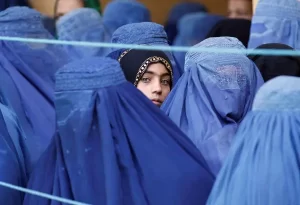 On the eve of the third meeting in Doha, the officials of the Taliban government said that the demands on women’s rights are “an issue related to Afghanistan” that should be resolved inside the country.
On the eve of the third meeting in Doha, the officials of the Taliban government said that the demands on women’s rights are “an issue related to Afghanistan” that should be resolved inside the country.
Zabihullah Mujahid, the spokesman of the Taliban group, said in a press conference in Kabul today that the Taliban group”decided to participate in this meeting after its conditions were accepted by the United Nations.”
He said about Afghan women’s rights: “We are trying to find a logical path for solutions inside Afghanistan so that, God forbid, our country does not fall into conflict and conflict again.”
He expressed his hope that this time at the Doha meeting, he will bring his strategy to the ears of the international community regarding constructive interaction with the world.
The third meeting of the United Nations on Afghanistan is scheduled to be held on, June 30 and July 1 (Cancer 10 and 11) in the capital of Qatar.
11 World Human Rights Organization: The rights of Afghan women and girls are not "negotiable" at the Doha meeting
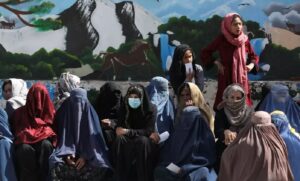 Eleven international human rights organizations wrote in a letter to the United Nations, the Security Council and member states about women’s rights in Afghanistan that the rights of women and girls in the Doha meeting are “non-negotiable” in interaction with the Taliban group.
Eleven international human rights organizations wrote in a letter to the United Nations, the Security Council and member states about women’s rights in Afghanistan that the rights of women and girls in the Doha meeting are “non-negotiable” in interaction with the Taliban group.
These human rights organizations say that in the third meeting of the special representatives of the countries hosted by the United Nations on June 30-July 1 in Doha, Qatar, this message should be harmoniously reflected to the Taliban group.
The letter also states that after the second Doha meeting in February 2024, the Taliban has intensified the harassment and violation of the rights of women and girls in an unprecedented manner, which international experts call “gender apartheid”.
These organizations say that by issuing 97 restriction orders for women and girls in Afghanistan, the Taliban government has become more serious in implementing these orders.
According to these human rights organizations, the space for women and girls to make their own decisions about their lives is “shrinking every day” and in such a situation, the international community’s approach to Afghanistan to stop the Taliban from systematically suppressing women’s rights has “failed.
UN: Afghanistan is one of seven countries that has no women in its cabinet
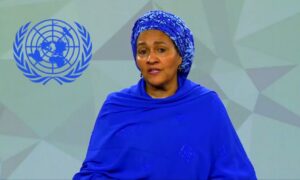 In a statement marking International Women’s Day in Diplomacy, the United Nations said that Afghanistan is one of only seven countries that does not have a single woman in its cabinet.
In a statement marking International Women’s Day in Diplomacy, the United Nations said that Afghanistan is one of only seven countries that does not have a single woman in its cabinet.
International Women’s Day in Diplomacy is celebrated on June 24 every year at the United Nations headquarters in New York.
The United Nations said women have participated in diplomacy for centuries, but their contribution has often been overlooked.
The organization stated that only 26 countries in the world are led by women; and that women make up 23.3% of the total number of cabinet members worldwide. This is a slight increase on 2024.
However, Afghanistan is one of only seven countries in the world that does not have any women in its cabinet.
Amina Mohammad, Deputy Secretary General of the United Nations, says: “This day is not just an occasion, but emphasizes the importance of women’s participation in governments and peace negotiations at the international level. If we leave half of humanity behind, we cannot reach our common goals.
Iodis said: “Since coming to Afghanistan, I have met the most resilient, courageous and hardworking women who are determined to shape the future of this country.”
However, the caretaker government has always said that women’s rights have been secured more than ever before in accordance with Islamic Sharia.
But on the eve of the upcoming UN-led Doha meeting, which is scheduled to be held in less than five days, reactions to the absence of Afghan women at this meeting have increased.
In the latest case, the G7 asked in a letter to the United Nations that civil society and women should be part of the Doha talks.
Afghan Industry Grows with 121 New Factories in 1403
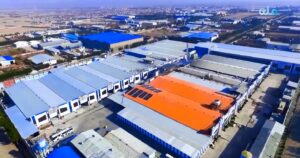 Akhundzada Abdul Salam Jawad, the spokesperson for the Ministry of Industry and Commerce, told media that 121 factories were established in various sectors across the country in the current solar year 1403.
Akhundzada Abdul Salam Jawad, the spokesperson for the Ministry of Industry and Commerce, told media that 121 factories were established in various sectors across the country in the current solar year 1403.
Akhundzada Abdul Salam Jawad said that during this period, 217 production machines have also been imported into the country by industrialists in the heavy, light, and primary sectors.
The spokesperson for the Ministry of Industry and Commerce said: “Since the beginning of the solar year 1403, 121 new factories have been established and 217 machines have been imported into Afghanistan.
This is while last year, 614 factories were established, and 1,098 machines were imported into the country.
This indicates an increase in investment and production within the country. These machines belong to the heavy, light, and primary industrial sectors.”
The Afghanistan Chamber of Industries and Mines believed that if more facilities are provided for industrialists in the country, domestic industries will witness significant growth.
Sakhi Ahmad Paiman, the first deputy of the Chamber of Industries and Mines, told media: “Fortunately, this year we have witnessed industrial investments in Afghanistan. The heavy and light industries, as much as they are supported, are important for the growth of Afghanistan’s industry in terms of energy supply, land distribution, and also the increase in tariffs on similar imported goods.”
Some economic experts also emphasized the support of industrialists in the country, saying that a large part of Afghanistan’s needs is met by domestic industrial productions.
“Production factories are operating in the absence of ample economic facilities. If some facilities and ease are provided for the public factories, including grants, ensuring needs such as energy, and small loans, it will play a significant role in strengthening our production factories,” said Shakir Yaqubi, an economic analyst.
“Our production factories currently do not have land; they face many problems due to the lack of land and electricity,” said Shams Rahman Ahmadzai, another economic analyst.
According to statistics from the Chamber of Industries and Mines, more than 5,000 factories in various sectors operate in 18 industrial parks in the country, bringing Afghanistan to self-sufficiency and semi-self-sufficiency in some sectors.
Afghanistan's Carpet Exports Reach $7.5 Million in 5 Months
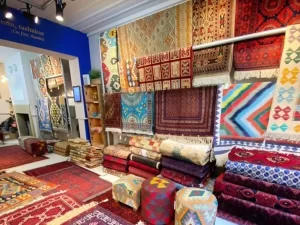 The Ministry of Industry and Commerce said that Afghanistan exported carpets worth $7.5 million dollars in the past five months.
The Ministry of Industry and Commerce said that Afghanistan exported carpets worth $7.5 million dollars in the past five months.
According to Akhundzada Abdul Salam Jawad, the spokesperson for the Ministry of Industry and Commerce, most of these carpets have been exported to neighboring countries and Europe.
The spokesman told media: “During the first five months of 2024, more than two million kilograms of carpets worth $7.5 million dollars were exported to countries including Pakistan, Uzbekistan, Italy, Turkey, the United States, India, Germany, the United Arab Emirates, China, and other countries.”
Meanwhile, the Afghanistan Carpet Union said that if the challenges faced by traders in the visa issuance process are addressed and air corridors are activated, the volume of carpet exports will increase further. The union reported a 7% increase in carpet sales abroad compared to last year.
Noor Ahmad Noori, the head of the Afghanistan Carpet Union, told TOLOnews: “Due to the efforts of the Ministry of Industry and Commerce and the leadership of the Afghanistan Carpet Union, the sales of Afghan carpets in Turkey, Kazakhstan, and Central Asian countries have increased. This means that compared to last year, domestic sales have also increased by 7% this year due to the efforts of the Ministry of Industry and Commerce and the Carpet Union.”
Meanwhile, a number of carpet sellers in the capital said that due to certain challenges, they are forced to sell some of their carpets to Pakistani traders at a lower price, who then export Afghanistan’s products to European countries and the US under the name of Pakistan.
According to carpet sellers, Afghan women, especially women from the northern part of the country, weave the finest carpets in the world.
“We have problems in sales; we export most of our carpets to Pakistan, and Pakistani traders export these carpets to European countries under the name of Pakistan,” Ghulam Ali Shirzad, a carpet seller.
“These carpets are made from pure sheep wool and are hand-woven, meaning no chemical materials are used in these carpets. These carpets are not produced by machines and are woven by Afghan women by hand,” said Makhdoom Quli, a carpet seller.
The Afghanistan Carpet Union has always emphasized the need to participate in national and international carpet industry exhibitions, stating that if the problems in the visa issuance process for traders are addressed and air corridors are activated, the country’s carpet exports to various countries will increase.
Ministry Advances Construction Projects Along Amu River
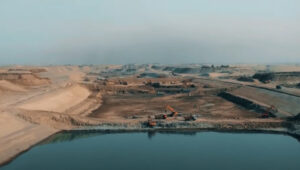 The Ministry of Energy and Water said that work on six major projects and twenty other projects aimed at strengthening the Amu River area, valued at 400 million Afghanis, is ongoing.
The Ministry of Energy and Water said that work on six major projects and twenty other projects aimed at strengthening the Amu River area, valued at 400 million Afghanis, is ongoing.
Matiullah Abed, the spokesman of Energy and Water, described these projects as significant in terms of water management, agricultural land irrigation, and electricity production.
The major projects include the reconstruction of Kamal Khan Dam, Pashdan Dam, Shah-wa-Aros Dam, Kajaki Dam, and Bakhshabad Dam.
Regarding these projects, the spokesperson for the Ministry of Energy and Water said: “The Ministry of Energy and Water is working on twenty projects in the area, costing approximately 400 million Afghanis, to strengthen the Amu River areas for water management, and some of these projects have already been completed.”
Meanwhile, some economic experts consider further investments in water dams beneficial for increasing agricultural products and energy production. According to experts, if more investments are not made in the construction of water dams and water management in the country, Afghanistan will face a more severe water crisis.
“Our agricultural sector will face problems, our energy sector will also face problems, because the flow of water that we have in Afghanistan is decreasing, and the electricity dams will face issues,” Taj Mohammad Talash, an economic expert, told X.
“Due to the lack of dams, water is wasted, and it also causes soil erosion and floods, which have always destroyed agricultural lands and caused financial and human losses,” said Abdul Nasir Reshtya, another economic expert.
Earlier, the Ministry of Energy and Water said that in collaboration with foreign organizations they would construct 100 check dams to recharge groundwater in various provinces during the current solar year.
Afghanistan’s oil sector is a source of growing interest among investors: IEA
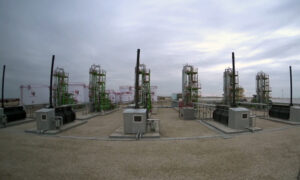 Afghanistan’s Ministry of Mines and Petroleum reports that the country’s lucrative oil sector is generating growing interest from a number of countries in the region including Iran, Turkey, Russia and Uzbekistan.
Afghanistan’s Ministry of Mines and Petroleum reports that the country’s lucrative oil sector is generating growing interest from a number of countries in the region including Iran, Turkey, Russia and Uzbekistan.
According to officials, companies in these countries have shown serious interest in investing in the extraction and refinement processes.
The ministry has however called on Afghan investors to also take advantage of opportunities in the sector.
Afghanistan’s Crude Oil Refinery Union has meanwhile urged the Islamic Emirate to support local investors in the extraction process but also by establishing refineries that meet international standards.
Afghanistan Chamber of Commerce and Investment (ACCI) officials meanwhile called on the ministry to also focus on increasing the operational capacity of established oil extraction companies and in building refineries instead of focusing on attracting foreign investors.
Muhammad Younus Mohmand, Vice-Chairman of the ACCI, said: “Our wish is that the refineries that people invest in, in Afghanistan, should be supported.”
According to union officials, over $300 million has already been invested in the sector in the country, providing jobs to thousands of workers.
Afghanistan sells 20,000 tons of crude oil for $10.5 million
 The Ministry of Mines and Petroleum on Sunday sold 20,000 tons of crude oil for $10.5 million, said acting Minister of Mines and Petroleum Shahabuddin Delawar.
The Ministry of Mines and Petroleum on Sunday sold 20,000 tons of crude oil for $10.5 million, said acting Minister of Mines and Petroleum Shahabuddin Delawar.
Speaking at a bidding ceremony, he said the oil was extracted from the Angut area of the Amu Darya oil field and was sold to a local company.
Delawar added that bidding for the extraction and exploration of 11 oil and gas blocks across an area of 23,000 square kilometers in Herat province will be held in the near future.
According to him, contracts will also be awarded for oil extraction in Katwaz area of Paktika Province.
Based on the rules of the Ministry of Mines and Petroleum, the winning companies are obliged to process crude oil inside the country, as it would provide job opportunities to locals.
Meanwhile, Delawar said that they are committed to using professional companies in the mining sector.
New support fund officially launched for private sector
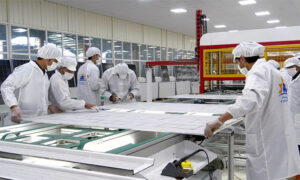 A support fund for the private sector was officially launched on Thursday in the presence of Mullah Abdul Ghani Baradar, the Deputy Prime Minister for Economic Affairs of the caretaker government of Afghanistan, Nooruddin Azizi, acting Minister of Commerce in Industry, officials of various ministries and members of the private sector.
A support fund for the private sector was officially launched on Thursday in the presence of Mullah Abdul Ghani Baradar, the Deputy Prime Minister for Economic Affairs of the caretaker government of Afghanistan, Nooruddin Azizi, acting Minister of Commerce in Industry, officials of various ministries and members of the private sector.
The private sector support fund has been established to achieve sustainable economic growth and development, reduce unemployment, create new job opportunities, trade balance, reduce obstacles and threats to private sector activities, and provide facilities in the trade and transit process.
Also, having a reliable financial source for implementing projects and programs related to the private sector, financing programs related to the National Ports Committee, building the required facilities in ports and crossings, creating laboratories and purchasing equipment for testing the quality of imported and exported goods, are among the main aims of this initiative.
Baradar said at the event that with this system, the level of unemployment will decrease and work opportunities will be provided for citizens.
He asked members of the private sector to speed up their “activities and perform them with better quality”.
Azizi in turn said: “The projects that are prioritized through the leadership committee of the fund and in consultation with the private sector will surely increase trade, reduce prices for consumers, and accelerate imports and exports.”
He said the Ministry of Commerce and Industry is committed to providing grounds for the development of the private sector.
The private sector support fund is meanwhile made up of leaders and technical committees.
The members of these committees consist of representatives of the Deputy Prime Minister for Economic Affairs, General Directorate of Affairs, Ministries of Commerce and Industry, Finance, Agriculture, Irrigation and Livestock, Economy, Energy and Water, Telecommunications and Information Technology, Mines and Petroleum, and sectorial chambers.
The main duties of the committee are leading, approving or rejecting proposed projects, determining the contribution amount for the fund, prioritizing the projects, monitoring the activities of the technical committee, monitoring the implementation of the projects, and submitting a report on the expenses of the projects to the highest authority.
This fund is financed through the help, assistance and donations of people and organizations at a national and international level and a small amount on taxes on imported and exported goods will go towards the fund.
Three contracts awarded for new cement plants in Afghanistan
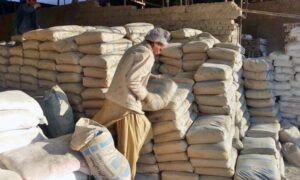 The Ministry of Mines and Petroleum says contracts worth over $500 million have been awarded to companies to establish cement manufacturing facilities.
The Ministry of Mines and Petroleum says contracts worth over $500 million have been awarded to companies to establish cement manufacturing facilities.
This includes mining of raw materials in Herat, Parwan and Kandahar provinces.
The ministry officials also said that contracts are expected to be awarded to companies for an additional three sites in Logar, Jawzjan and Samangan provinces.
Officials from the Ministry of Economy also said that they are trying to reduce poverty and create job opportunities for citizens by implementing macroeconomic and infrastructure projects.
Economic experts, meanwhile, said that with the start of cement production and processing in Afghanistan, along with the growth of the economy, thousands of jobs will be provided.
Currently, Afghanistan imports cement from Pakistan and Iran.
FAO Warns of Locust Swarms Threatening Northern Afghanistan's Agriculture
 The Food and Agriculture Organization of the United Nations warned of the threat of increased locust swarms in the fertile regions of northern Afghanistan.
The Food and Agriculture Organization of the United Nations warned of the threat of increased locust swarms in the fertile regions of northern Afghanistan.
The organization added that the agricultural lands in northern Afghanistan have faced locust swarms for the second consecutive year.
Richard Trenchard, the FAO representative in Afghanistan, said: “This, [standing in a fertile area] just two or three days ago, was a wheat field with wheat growing well, and now, the locusts, they’ve just taken everything. This is a family’s food, a family’s income for the next few months, and it’s just gone.”
Trenchard emphasized that more efforts need to be made to address the locust swarms in the agricultural lands.
He added: “The Moroccan locust is one of the world’s greatest threats to plants. And this is why it’s so, so important that the Ministry of Agriculture here is launching an enormous campaign here to rid of the north of Afghanistan, Afghanistan’s breakfast, of this incredible threat now.”
Some farmers said their crops have been destroyed due to the locust swarms.
“Look, from the side where I planted, the locusts have started eating, and nothing is left. If they eat the leaves, it is now their season, and nothing will remain for us,” said Mohammad Ibrahim, a farmer.
This farmer also urged aid organizations and authorities to cooperate with him to prevent further destruction of his cultivated land.
He told media: “I have 20 acres of cultivated land here. 11 acres are destroyed, and 9 acres are left. I had planted wheat. If the season passes, how can I support my family?”
According to the Food and Agriculture Organization of the United Nations, Afghanistan is currently a poor country and due to the negative impact on the economy, more than 28 million people in Afghanistan rely on international aid to survive.
Poverty in Afghanistan Highlighted at UNSC Meeting
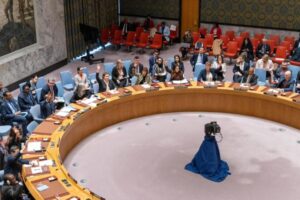 Roza Otunbayeva, head of the UN Assistance Mission in Afghanistan (UNAMA), stated at the Security Council meeting that despite billions of dollars flowing into Afghanistan, the country still faces widespread poverty.
Roza Otunbayeva, head of the UN Assistance Mission in Afghanistan (UNAMA), stated at the Security Council meeting that despite billions of dollars flowing into Afghanistan, the country still faces widespread poverty.
At the meeting, the head of UNAMA praised the Islamic Emirate’s efforts towards self-sufficiency and emphasized that regional cooperation in enhancing trade, diplomatic contacts, and economic investments has improved stability in Afghanistan.
Roza Otunbayeva said, “More than seven billion dollars have been provided by international donors for humanitarian assistance and more than four billion to support basic human needs to the Afghan people since the Taliban takeover.”
Meanwhile, the UN Office for the Coordination of Humanitarian Affairs (OCHA) has identified Afghanistan as ranked third in the world for the number of people in need.
Lisa Doughten, head of the UN Office for the Coordination for Humanitarian Affairs Humanitarian Financing and Resource Mobilization Division, said at a Security Council meeting on Afghanistan, “More than 50 percent of the population – some 23.7 million people – require humanitarian assistance this year, the third highest number of people in need in the world. Half the population lives in poverty. One in four Afghans are uncertain where their next meal will come from. Nearly three million children are experiencing acute levels of hunger.”
Ambassador Hwang Joon-kook, Permanent Representative of the Republic of Korea, also stated that climate change in Afghanistan has caused suffering and displacement.
However, the Ministry of Economy stated that international community aid has been effective in reducing poverty in Afghanistan.
Abdul Latif Nazari, Deputy Minister of Economy, told “The international community’s aid has played a role in reducing poverty in Afghanistan, and we call for an increase in aid to the Afghan people.”
Abdul Zahoor Madaber, an economic analyst, told, “According to Roza Otunbayeva’s statements, the de facto government needs to cooperate with UNAMA, and UNAMA with the caretaker government, to significantly reduce poverty in Afghanistan.”
In her report to the Security Council, the head of the UN mission in Afghanistan noted that the restrictions have obscured the achievements of the caretaker government and stated that the caretaker government underestimates the help of the international community, while this aid has contributed to the success of the interim government.
Afghan Trust Fund in Switzerland Has Generated $300M in Interest
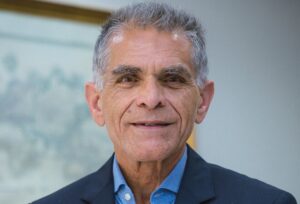 The Afghan Trust Fund was created in September 2022 to safeguard $3.5 billion of the country’s assets in Switzerland.
The Afghan Trust Fund was created in September 2022 to safeguard $3.5 billion of the country’s assets in Switzerland.
Shah Mohammad Mehrabi, board member of the Afghan Trust Fund in Switzerland, told media that the fund has so far generated about $300 million in profit.
Shah Mohammad Mehrabi said that the primary purpose of establishing this fund is to ensure financial stability in Afghanistan.
The Afghan Trust Fund was created in September 2022 to safeguard $3.5 billion of the country’s assets in Switzerland.
Shah Mohammad Mehrabi said: “As a trustee and co-chair of the Afghan fund, my role is to safeguard these funds including any interest they generate and assure it’s used in accordance with the primary objective of maintaining financial stability.”
A number of economic experts believe that the gains from Afghanistan’s assets should be spent on developmental projects to positively impact the country’s economic growth.
Abdul Naseer Reshtia, an economic expert, said: “If this money is spent on non-economic purposes, it could devalue the Afghan currency. Additionally, this money can help Afghanistan in establishing credibility in international trade.”
Another economic expert, Abdul Zohoor Mudaber, said: “It is good that the Afghanistan Trust Fund has generated income. This should be returned to the people of Afghanistan so they can invest in appropriate areas such as infrastructure, the agriculture sector, the energy sector, and water resources according to their preferences.”
The Ministry of Economy once again called on the United States to release Afghanistan’s assets without any conditions.
Abdul Latif Nazari, the Deputy Minister of Economy, said: “The freezing of Afghan people’s assets is in violation of international laws. I hope these assets are released as soon as possible and that the release can positively contribute to the country’s economic growth and development.”
Following the political changes in August 2021, more than nine billion dollars of Afghanistan’s assets were frozen in US and European banks.
China Has Expressed Interest in Lithium Mines: Ministry
 The Ministry of Mines and Petroleum stated that Afghanistan’s lithium mines have not yet been contracted with any company.
The Ministry of Mines and Petroleum stated that Afghanistan’s lithium mines have not yet been contracted with any company.
Ministry spokesman Homayoun Afghan says that lithium mines are located in the provinces of Helmand, Nuristan, and Ghazni, and several countries, including China, are interested in investing in them.
Afghan said: “Lithium is one of Afghanistan’s strategic minerals. Although several companies, including Chinese companies, have shown interest, no contracts have been signed with anyone yet.”
Afghanistan is at the top of the list of countries with abundant lithium mines.
At the same time, some economic experts say that investment in lithium mines plays a significant role in increasing the country’s revenue.
Abdul Nasir Rashtia, an economic expert, said: “If we can carry out all the processing and production stages within the country, it can have a very high economic impact, creating job opportunities, generating revenue, and driving us towards economic growth.”
Another economic expert, Shakir Yaqubi, said: “If we proceed with foreign countries or contracting companies in a way that, apart from meeting our internal needs, brings substantial revenue from lithium to Afghanistan, it will be a good opportunity. Afghanistan’s lithium can provide better resources for the mining sector.”
Three Afghans among ICC’s ‘selection’ for ideal T20 World Cup 2024 team
 Three Afghan cricket players have made the ICC’s T20 World Cup 2024 team of the tournament list.
Three Afghan cricket players have made the ICC’s T20 World Cup 2024 team of the tournament list.
This year’s selection panel, which was made up of commentators Harsha Bhogle, Ian Bishop and Kass Naidoo and ICC General Manager of Cricket Wasim Khan, announced their selection on Sunday, which included Rashid Khan, Fazalhaq Farooqi and Rahmanullah Gurbaz.
Six players from World Cup winners India make the cut including skipper Rohit Sharma and Player of the Tournament Jasprit Bumrah.
The team of the ICC Men’s T20 World Cup 2024 (in batting order) is:
- Rohit Sharma (captain) – India
- Rahmanullah Gurbaz (wicketkeeper) – Afghanistan
- Nicholas Pooran – West Indies
- Suryakumar Yadav – India
- Marcus Stoinis – Australia
- Hardik Pandya – India
- Axar Patel – India
- Rashid Khan – Afghanistan
- Jasprit Bumrah – India
- Arshdeep Singha – India
- Fazalhaq Farooqi – Afghanistan
- Anrich Nortje – South Africa
Rohit Sharma will captain the team of the ICC Men’s T20 World Cup 2024 after leading India to their second victory in the competition.
Sharma finished as the second top run-scorer in the competition, scoring 257 runs in eight innings. The pick of his performances came in the win over Australia, when he smashed 92, before adding 57 in the semi-final success against Australia.
He is joined at the top of the order by Afghanistan wicket-keeper Rahmanullah Gurbaz, the only man to outscore the Indian opener.
Rahmanullah made 281 runs as Afghanistan progressed to the semi-finals for the first time in their history, making half-centuries in three matches. His 60 against Australia proved pivotal as Afghanistan progressed from the Super 8s.
In at No.3 is Nicholas Pooran, the West Indies wicket-keeper batter, who scored 228 runs at an average of 38, including a 53-ball 98 in victory over Afghanistan.
The second Indian player in the XI is Suryakumar Yadav, the hard-hitting batter rewarded for some crucial innings, notably in the semi-final against England, 47, and the Super 8s win over Afghanistan when he smashed 53 off just 28 balls.
At No.5 is the sole Australian in the team, with Marcus Stoinis included after a stellar tournament. Stoinis contributed with bat and ball, scoring his 169 runs at an average of over 40, and a strike rate in excess of 160. He also chipped in with 10 wickets across the tournament.
The next all-rounder comes from India, Hardik Pandya scoring 144 runs at an average of 48, while also picking up 11 wickets with the ball, and bowling the all-important final over to seal victory.
His teammate Axar Patel was similarly influential with bat and ball. The left-armer was promoted up the order in the final, scoring an invaluable 47, while his three for 23 helped secure victory over England in the semi-final.
Rashid Khan comes in at No.8, the Afghanistan all-rounder excelling in the Caribbean with 14 wickets at an average of 12.78 and an economy rate just over six.
He is followed by Jasprit Bumrah, the standout performer across the entire tournament. It was his spell that swung the final back India’s way, and he finished with 15 wickets at an average of just 8.26, with a remarkable economy rate of 4.17.
The final Indian player in the XI is Arshdeep Singh, who was outstanding in his second World Cup. His 17 wickets were the joint most of any player, including a crucial two for 20 in the final.
The only man to match Arshdeep’s wicket tally was Fazalhaq Farooqi, of Afghanistan, the final player in the XI. His four for 17 helped beat New Zealand in the group stages, as Afghanistan progressed ahead of the Black Caps.
Runners-up South Africa provide the 12th man in the team, with Anrich Nortje having been outstanding for the Proteas. He took 15 wickets at an average of 13.40 and an economy rate under six.
Afghanistan pulls off stunning upset against Australia in T20 World Cup match
 Afghanistan on Sunday sealed its first-ever win against Australia in an exceptional all-round display in their Super 8 T20 World Cup match.
Afghanistan on Sunday sealed its first-ever win against Australia in an exceptional all-round display in their Super 8 T20 World Cup match.
Collecting one of the team’s best ever cricketing victories, Afghanistan ended Australia’s unbeaten World Cup 2024.
Australia’s skipper Mitch Marsh won the toss and opted to field first but Afghanistan took little time to make Marsh question whether he’d made the right decision.
The Afghans had a plan and it was executed out of the gate, staying patient and precise.
Needing a victory to avoid elimination, Afghanistan posted 148-6 on the back of a superb opening stand of 118 between Rahmanullah Gurbaz and Ibrahim Zadran.
They quickly reduced Australia to 32-3 in the chase but Glenn Maxwell’s 35-ball half-century recovered the situation for the 2021 champions.
But just when Australia seemed to have the advantage, Gulbadin Naib removed Marcus Stoinis and Tim David before claiming the prize scalp of Maxwell.
From there Australia collapsed from 106-6 to 113-9 and Afghanistan sealed the win – their first over Australia in any form of cricket – in the final over.
Afghanistan to face Morocco in futsal friendlies
 Afghanistan’s national futsal team is scheduled to play two friendly matches against Morocco next month, it was announced on Saturday.
Afghanistan’s national futsal team is scheduled to play two friendly matches against Morocco next month, it was announced on Saturday.
The matches will be played behind closed doors on 10th and 13th July in Morocco, the Afghanistan Football Federation (AFF) said.
AFF highlighted that the matches are arranged in preparation for the 2024 FIFA Futsal World Cup, adding that it will bear the cost.
The 2024 FIFA Futsal World Cup is scheduled to start on 14 September in Uzbekistan.
It will be Afghanistan’s first appearance in the tournament.
Subscribe Now
Don’t miss our future updates! Get Subscribed Today!
© 2024 White Assembly. All Rights Reserved.
